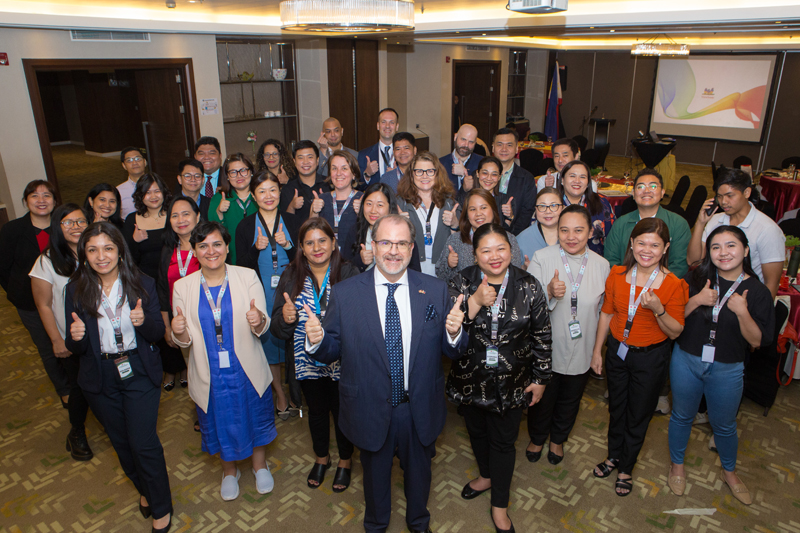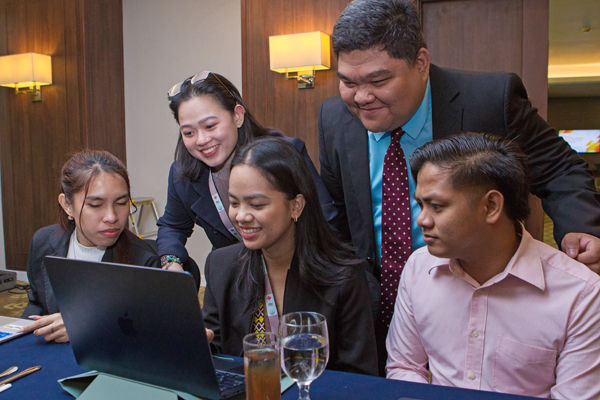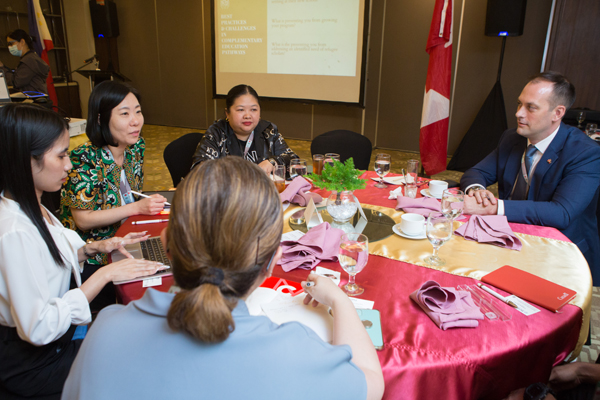Asia-Pacific Region Complementary Education Pathways Community of Practice Meeting

At the conference titled “Expanding Refugee Education Pathways” that JICUF co-hosted in Tokyo with the Global Task Force on Third Country Education Pathways (GTF), Pathways Japan, and Sophia University last May, participants from the Asia Pacific region expressed a desire for a regional meeting. Conversations around building and expanding complementary education pathways for refugees* are often held in Europe or North America, and are often difficult for stakeholders in Asia and the Pacific to join.
With the Embassy of Canada to the Philippines offering to take the lead, De La Salle University (the Philippines), the Refugee Education Special Interest Group (RESIG) (Australia), Pathways Japan and JICUF formed an organizing committee to plan a regional meeting.
With the Embassy of Canada and De La Salle generously offering to host it in Manila, the Asia-Pacific Region Complementary Education Pathways Community of Practice Meeting was held on February 12 and 13, 2024 at Hotel Benilde. The main objective was to further discuss ways to expand third-country educational opportunities for refugee students, with a particular focus on the commitments made and unique challenges faced by stakeholders in the region; the benefits of creating national university consortia; and the need for evaluation and research.

The meeting was attended in person by over 40 representatives of governments, UNHCR, higher education institutions, NGOs and students from Australia, Bangladesh, Japan, South Korea and the Philippines. Online sessions also allowed several international participants to contribute. It was particularly meaningful that all six universities in the Philippines which have committed to admitting refugee students (De La Salle University Araneta, De La Salle University Bacolod, Tarlac State University, Columban College, San Beda University and St. Louis University) were represented, along with 14 students. In the Philippines, the Department of Justice actively works with UNHCR to facilitate the recruitment of Rohingya students in Malaysia.
Sally Baker, Associate Professor at the Australian National University and Co-Chair of RESIG, introduced that since June 2023, the federal Australian government has been working with key groups such as RESIG, Community Refugee Sponsorship Australia (CRSA), and the newly-formed Australian Refugee Welcome University Sponsorship Consortium (ARWUSC), to co-design a blueprint for the Refugee Student Settlement Pathway (RSSP). The proposal for the RSSP is currently with the federal Minister for Immigration, with hope for an announcement in 2024.

From Japan, Norimasa Orii, Representative Director of Pathways Japan (PJ), gave an overview of PJ and JICUF’s work recruiting and supporting refugee students, as well as the Japan Education University Network (JEPN) which the two organizations co-manage to discuss common concerns, share best practices and collaborate to empower refugee students with 22 members.
Aki Takada, JICUF Vice President, provided an overview and updates on the Global Task Force and invited the participants of the Manila meeting to be actively involved in its Community of Practice.
A full report of the conference will be published soon on the GTF website.
*Complementary education pathways are “safe and regulated admission avenues by which refugees can move to a third country to study while meeting their international protection needs.” These programs are not merely study abroad scholarships, as they are required to ensure that refugees can remain in the host country after completing their studies.



